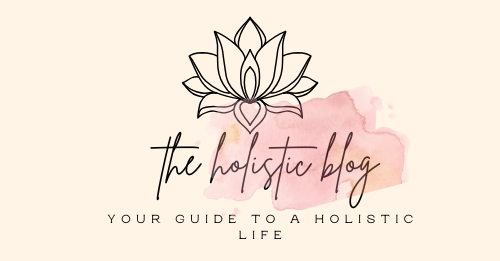Logotherapy : 5 Powerful Benefits for Holistic Wellness
Table of Contents
When life feels empty or overwhelming, it’s easy to fall into the trap of asking, “What’s the point of it all?” Maybe you’re struggling to get out of bed in the morning. Maybe you’ve hit a wall in your career, or you’ve lost someone who mattered more than words can say. In those moments, traditional advice often falls flat. That’s where logotherapy comes in—a powerful, meaning-centered approach to healing that’s designed to help you find purpose, even in pain.
What Is Logotherapy?
At its core, logotherapy is a form of existential psychotherapy that helps you discover meaning in your life even when things feel meaningless. The word “logos” comes from the Greek word for meaning, and this entire method is based on the idea that your primary drive as a human being isn’t pleasure or power it’s purpose.
Logotherapy was developed by Viktor E. Frankl, a neurologist, psychiatrist, and Holocaust survivor who wrote the life-changing book “Man’s Search for Meaning.” His experiences during World War II, especially in Nazi concentration camps, deeply shaped his understanding of human resilience. He realized that people who had a “why” to live could endure almost any “how.”

The Three Pillars of Logotherapy
Logotherapy stands on three main principles. Let’s break them down:
1. You Always Have the Freedom to Choose Your Attitude
Even if you can’t control your circumstances, you can always control how you respond. Frankl saw this firsthand while facing starvation, abuse, and the loss of his family. He learned that your attitude, not your environment, defines your reality.
2. You’re Driven by the Desire to Find Meaning
Unlike Freud, who believed we’re driven by pleasure, or Adler, who believed we crave power, Frankl argued that the deepest human need is to find meaning in life. When you lose that sense of meaning, you often feel lost, anxious, or depressed.
3. Meaning Can Be Found in Every Moment
You don’t need to wait for something big to give your life meaning. According to logotherapy, purpose can be found through love, creativity, and even suffering—as long as you approach life with the right mindset.
How Does Logotherapy Work?
Logotherapy doesn’t focus on digging up past trauma. Instead, it’s future-focused. It asks questions like:
- “What is life asking of you right now?”
- “How can you turn this situation into something meaningful?”
- “What’s your unique responsibility in this moment?”
A logotherapist might guide you through exercises such as:
- Socratic Dialogue – Asking deep, thought-provoking questions to uncover your personal values and goals.
- Dereflection – Shifting your focus away from obsessive problems by redirecting your attention toward purpose-driven action.
- Attitude Modification – Reframing negative thoughts by finding meaning in them.
When Should You Consider Logotherapy?
You don’t have to be in crisis to benefit from logotherapy but it can be a lifeline when you’re going through:
- Depression or anxiety
- Grief or loss
- Career burnout
- Feeling “stuck” or disconnected
- A mid-life identity crisis
- Post-traumatic stress
If you’ve ever asked yourself, “Why am I even here?” this method is for you.
Viktor Frankl: A Real-Life Example of Purpose in Pain
Viktor Frankl was imprisoned in multiple concentration camps, including Auschwitz. He lost his parents, his brother, and his pregnant wife. In the face of unthinkable suffering, he held on to one belief: life still has meaning, even if that meaning is only found in how you suffer.
He said it best:
“When we are no longer able to change a situation, we are challenged to change ourselves.”
Even in the darkest places, Frankl found purpose by imagining himself giving lectures after the war teaching others how to endure hardship with dignity and courage. That vision gave him strength. That’s the power of meaning.
Real-Life Examples of Finding Meaning
You don’t need to go through a tragedy to benefit from logotherapy. Here are everyday ways people find meaning:
- Acts of kindness – Volunteering or helping someone else can give you a deep sense of fulfillment.
- Creative expression – Writing, painting, or building something meaningful.
- Love and relationships – Being there for someone who matters to you.
- Overcoming hardship – Learning from failure, illness, or heartbreak and using it to grow.

Logotherapy vs. Traditional Therapy
Here’s how logotherapy compares to more conventional approaches:
| Logotherapy | Traditional Therapy |
|---|---|
| Focuses on future and purpose | Often focuses on past traumas |
| Seeks meaning in suffering | Analyzes thoughts and behaviors |
| Encourages personal responsibility | May emphasize emotional processing |
| Philosophical and spiritual | Psychological and clinical |
It’s not about replacing other forms of therapy—it’s about adding a powerful layer that goes beyond symptoms and helps you live a life that matters.
How You Can Start Applying Logotherapy Today
You don’t need a therapist to start using logotherapy in your own life. Here are a few steps you can take:
Ask Yourself Big Questions
- “What gives my life meaning today?”
- “What does this situation expect of me?”
- “Who needs me right now?”
Use Meaning-Focused Journaling
Try prompts like:
- “What did I do today that felt meaningful?”
- “How did I respond to a difficult moment with intention?”
- “What kind of person do I want to be in the face of challenge?”
Reframe Your Suffering
Instead of asking “Why me?”, ask:
- “What can I learn from this?”
- “How can I use this experience to help others?”
Finding a Logotherapist
If you’re ready to dive deeper, here’s how to get started:
- Search for certified logotherapists in your area or online.
- Read Viktor Frankl’s “Man’s Search for Meaning.”
- Explore programs offered by the Viktor Frankl Institute.
You’ll find that many therapists today incorporate logotherapy alongside cognitive behavioral therapy (CBT), mindfulness, or other approaches.
Final Thoughts: The Meaning You’ve Been Searching For
In a world full of distractions, it’s easy to lose sight of what really matters. But when you focus on meaning on your “why” you unlock a kind of mental strength that no hardship can fully take away.
Remember, you are not a victim of circumstance. You are the author of your story, and even when you can’t control the plot, you can always choose how you show up on the page.
So start asking yourself:
“What is life asking of me today?”
And let your answer lead the way.







